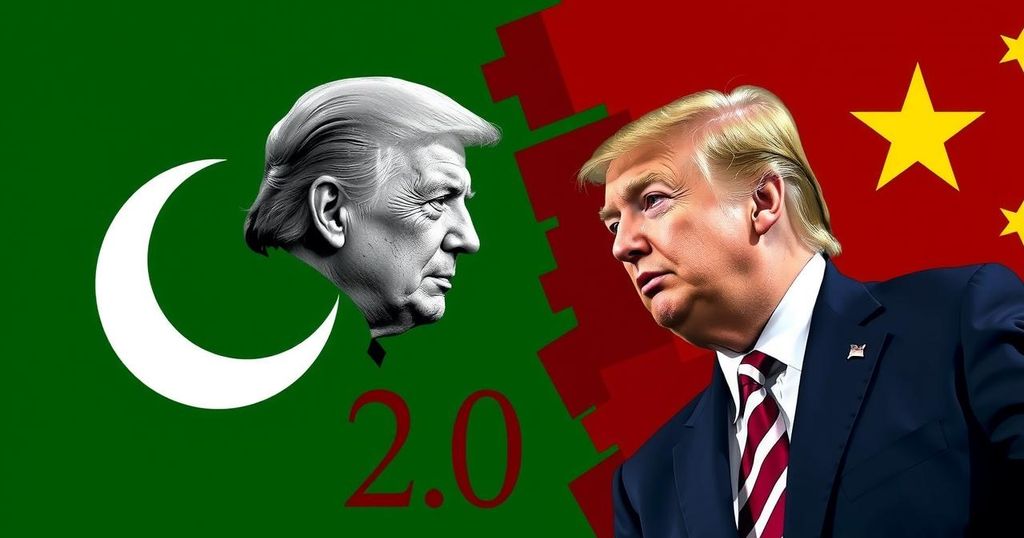Following Donald Trump’s 2024 election victory, former Pakistani Prime Minister Imran Khan congratulated him and expressed hope for improved U.S.-Pakistan relations. Analysts believe that while Khan’s party seeks U.S. intervention for his release, Trump’s administration is unlikely to prioritize Pakistan amid tensions with China. The complexity of Pakistan’s ties with both nations will shape its future diplomatic landscape.
In light of Donald Trump’s victory in the 2024 U.S. presidential election, Pakistani former Prime Minister Imran Khan, currently imprisoned, extended his congratulations through social media, expressing hope that Trump’s administration might foster solid ties between the United States and Pakistan based on mutual respect for democracy and human rights. Analysts suggest that although Khan’s Pakistan Tehreek-e-Insaf (PTI) party is optimistic about potential U.S. intervention regarding Khan’s release, U.S. foreign policy will likely prioritize counterterrorism over bilateral political matters. Pakistan’s officials appear skeptical about Washington exerting pressure for Khan’s release, maintaining their intent to manage U.S.-Pakistan relations on the principles of mutual respect and non-interference. Trump’s approach may further complicate Pakistan’s relationship with both the U.S. and China, especially given its growing economic dependence on China, evidenced by the $62 billion China-Pakistan Economic Corridor initiative. Experts argue that as U.S.-China tensions escalate, Pakistan might need to navigate pressure to strengthen ties with the United States while retaining its alliance with China. Ultimately, the evolution of U.S.-Pakistan relations under Trump remains uncertain, with minimal changes anticipated regarding aid and engagement.
The article discusses the implications of Donald Trump’s election victory for U.S.-Pakistan relations, especially in the context of Imran Khan’s imprisonment. It outlines how Khan’s party hopes Trump might advocate for his release while also addressing the complexities of Pakistan’s economic alignment with China. The backdrop involves tensions over political influence and international alliances, providing insights into how a second Trump administration might approach foreign policy with respect to Pakistan.
In summary, the potential for significant shifts in U.S.-Pakistan relations under a second Trump administration seems limited. Analysts emphasize that domestic and global issues may take precedence over Pakistan’s domestic political concerns. The relationship with China is also critical, as Pakistan balances its historical ties to the U.S. while navigating economic dependencies on China. Observers caution that while Trump could support Imran Khan, broader geopolitical dynamics may overshadow bilateral engagement.
Original Source: www.aljazeera.com






